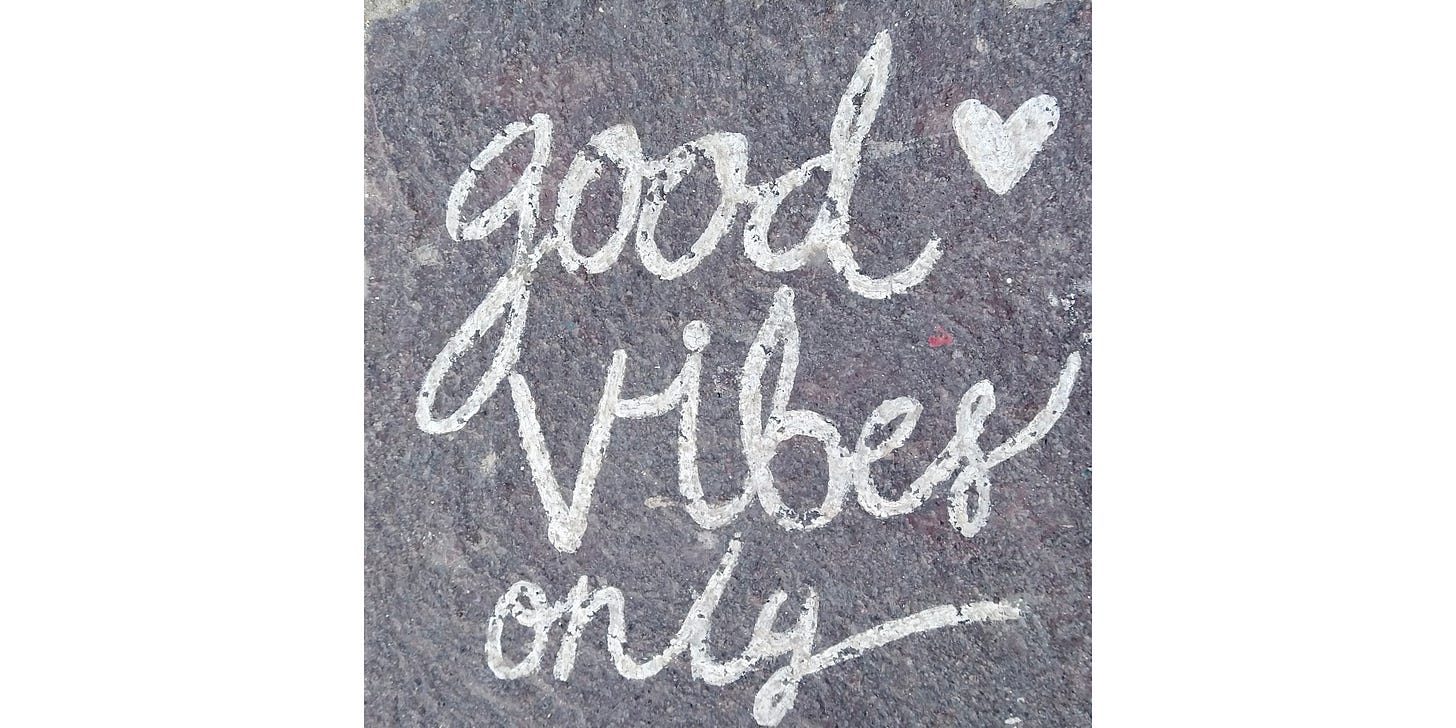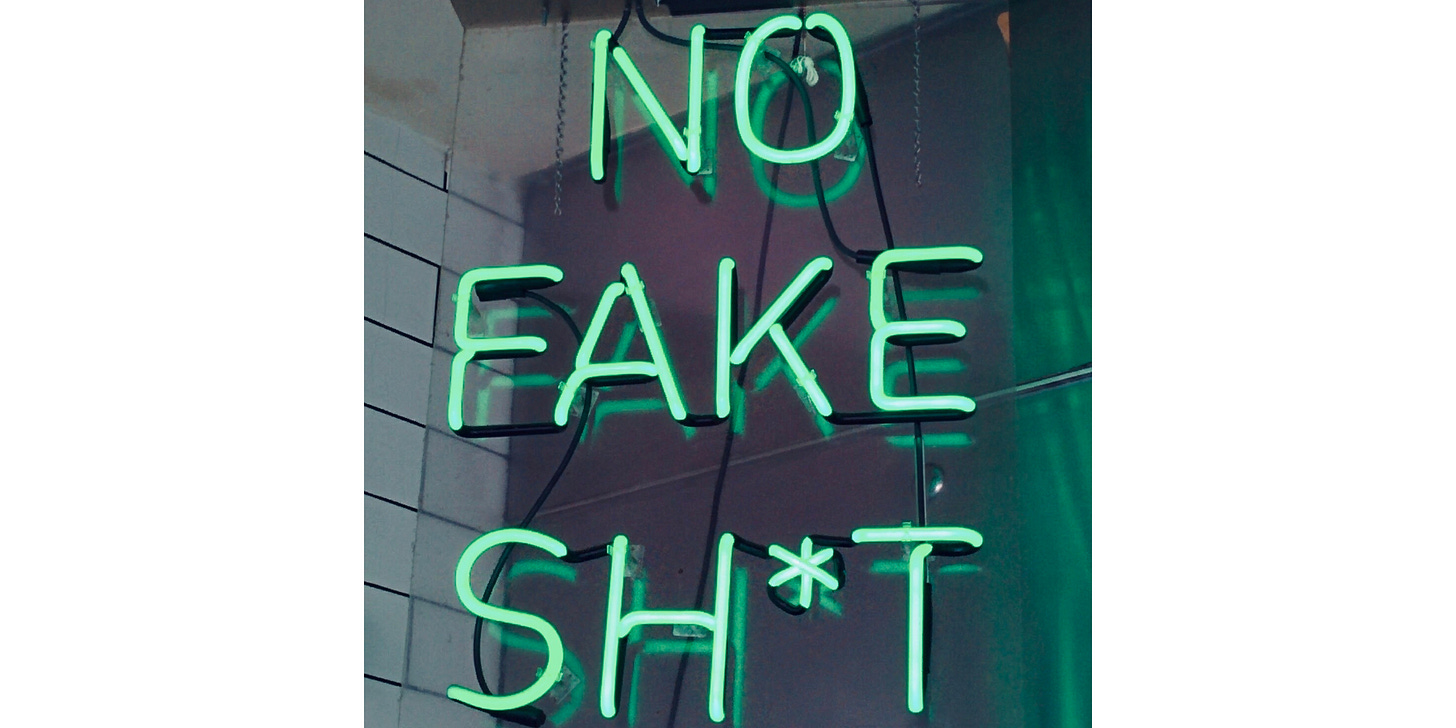Leap & Feast is your weekly dose for romantic mishaps, yummy feasts, globetrotting escapades, TV escapism, life musings & more! I'm Marina, a gal on a wild journey through the good, bad & everything in between.
In this chapter:
Embracing Realness and Growth
The past few years have taken us on a roller coaster ride, and I'm glad the ride has come to an end. It's amusing how those years, even though they're still vivid in our memories, already feel distant, don't they? Amidst the chaos of that period, a side of my personality emerged—the more negative part, making more appearances than I'd have preferred. What struck me during those moments of raw authenticity was an overwhelming pressure to stay positive, twisting my genuine expressions into what others see as negativity.
Now, don't get me wrong—I'm a firm believer in positivity. I genuinely understand the power of a positive outlook and how it can shape our lives for the better. However, let's be real: There's a significant difference between true positivity and the kind that feels forced and prevalent these days.
We hear everyone say, "Be genuine. Be transparent. Embrace your true feelings." Are these merely trendy expressions, or do they genuinely reflect an inclusive mindset? Because the moment we divulge our honesty and authenticity, it's like a red light appears, and suddenly, "Hold on! Yes, be honest, but not with me. I don't want to deal with or empathize with YOUR emotions." Hence it often feels like we're only accepted when our emotions match others' and when we open up about something that may not be pleasant, we're met with a chorus of "Don't be so negative.”
Of course, we should never lay our baggage on someone with hopes they will carry the weight for us. But if we can't be genuine with those close to us and allow ourselves to be vulnerable, then who can we truly be authentic with?
However, sometimes, I wonder if what people label as negativity is merely a viewpoint assigned by someone who doesn't fully understand the situation or share the same perspective. Or better yet, someone who wants to live in a field of continuously blooming sunflowers without ever having to dig and plant the seeds. It's easier to put on a filter that warps the truth of what's being communicated rather than being a part of a deeper conversation.
Let's be honest—life gets messy and challenging. In those tough moments, what we truly need isn't a fake grin and hollow words of positivity, but a listening ear and a compassionate heart. We require someone who comprehends that it's alright to feel angry, sad, or frustrated. And you know what? It's alright to express negativity. It's not a terrible thing. Negativity can actually be used as an advantage. Personally, when I contemplate things, people, or situations that evoke anger, sadness, or negativity within me, it propels me to do better, think better, and even move on from situations, jobs, and people that don't serve me.
I know many individuals who consistently avoid delving deeper and seem to stay in a perpetual state of having blinders on. It's as if they don't want to explore their thoughts and ideas, possibly because doing so may unearth perspectives they'd rather avoid. I understand why—digging deep into our true selves can lead us to realize that our current life situation may not align with our desires. Consequently, I find that these individuals are often the ones who label negativity and tell us to “look on the bright side.”
However, let me clarify. I understand that it's not enjoyable to hear a friend, family member, or colleague constantly vent about aspects of their life they aren't actively addressing. It's okay to set boundaries. But keep in mind, life confronts all of us with less-than-pleasant things. The important thing is that we speak up and address what makes us unhappy, frustrated, sad, and overwhelmed rather than concealing our negativity' within a present that may never be unwrapped. And how sad is it if we do not allow ourselves to unravel that bow? Because by pulling on that bow, even slowly and maybe with a bit of unease, the more there is an opportunity for growth and learning.
What are your thoughts? Can negativity be a tool that can help us propel forward in life? Can there be degrees of negativity? Or do you see it as someone complaining, being a ‘Debbie downer?’
I hope you enjoyed Chapter 7.
If you like reading Leap & Feast, please COMMENT, HEART & SHARE below, and be sure to subscribe for free to receive new posts and support my work.
xo Marina
P.S. Want to follow funny, easy-to-watch Instagrammers? Click here for some of my favorites.




